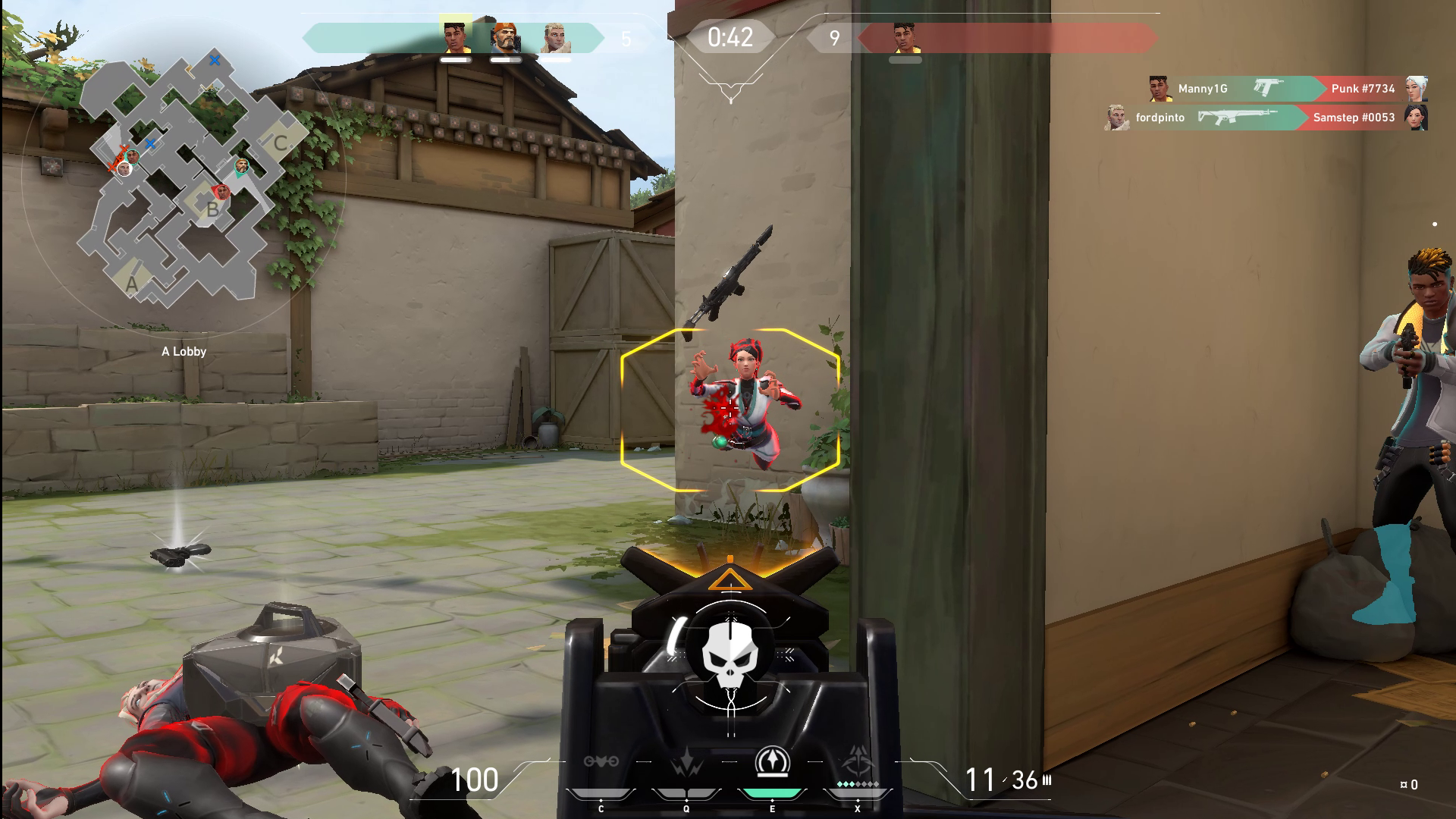Riot requires 'major' Valorant tournaments to disable visible blood
Riot has big plans for the Valorant esports scene.

Esports obviously figures largely in Riot's plan for Valorant: League of Legends is more than ten years old, yet remains a massively popular game thanks to its thriving pro scene. Riot sees similar potential in its new shooter, and today it shared some of its ideas for the future of Valorant as a competitive esport.
"We’re overwhelmed by the interest and excitement behind Valorant, and we’re excited to embark on this long esports journey with you all. We’re already hearing questions on what esports will look like, and while it’s early, we’ll try to share whatever details we can," Riot director of esports Whalen "Magus" Rozelle wrote.
"As part of our Authenticity principle, we want to let Valorant grow naturally; we’re not looking to force anything too quickly without knowing what’s best for esports fans. As such, a primary focus early on will be forming partnerships with players, content creators, tournament organizers, and developers—unlocking them to help us to build this ecosystem."
To help organizers get a better idea of how it's going to work, Riot has released "community competition guidelines" that lay out the basic requirements for small, medium, and major tournaments. Local tournaments organized by players, PC cafes, or members of the community, can have prize pools of up to $10,000, but are intended to be primarily for fun and "social play," while at the opposite end of the scale, major tournaments will be fully organized events that serve as a "prelude to competitive play," and will put together by major esports organizations such as ESL and Dreamhack, through Riot's global esports team.
There are also guidelines for casters, sponsors, and partners, including a requirement that tournaments broadcast online must be adequately moderated "to prevent vulgar, abusive, or an otherwise mean spirited environment" in the chat. Medium and major tournaments—that is, those focused on monetization and brand development—must also switch off the "Show Blood" option in the Valorant settings. That might seem like an oddly puritanical restriction in an era where every Mortal Kombat teaser is more hilariously bonkers than the last, but as Polygon pointed out, cutting out the blood (even though the shooting remains) could make the pro Valorant scene more appealing for advertisers.
"In the future, you can expect us to partner with others who share our vision and to work closely with the game development team in maintaining a cohesive experience between Valorant and the esport," Rozelle wrote. "To everyone hoping to compete in the Valorant ecosystem—ten, twenty, thirty years from now—we couldn’t be more excited to take our first steps with you on this journey!"
Those tournaments are still a long way off, but Riot is (very) slowly opening Valorant to the masses: Closed beta keys can now be earned by watching any Valorant stream on Twitch, and closed beta server capacity is being boosted to keep up with the demand.
The biggest gaming news, reviews and hardware deals
Keep up to date with the most important stories and the best deals, as picked by the PC Gamer team.

Andy has been gaming on PCs from the very beginning, starting as a youngster with text adventures and primitive action games on a cassette-based TRS80. From there he graduated to the glory days of Sierra Online adventures and Microprose sims, ran a local BBS, learned how to build PCs, and developed a longstanding love of RPGs, immersive sims, and shooters. He began writing videogame news in 2007 for The Escapist and somehow managed to avoid getting fired until 2014, when he joined the storied ranks of PC Gamer. He covers all aspects of the industry, from new game announcements and patch notes to legal disputes, Twitch beefs, esports, and Henry Cavill. Lots of Henry Cavill.

